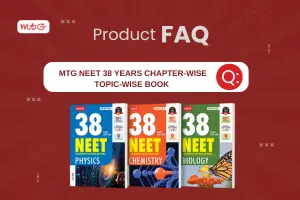Around 23 lakh candidates appeared for the NEET exam today, a slight decrease from the 24 lakh students who registered for NEET last year. Despite the drop in registrations, the competition remains intense, as the exam offers access to only around 1.20 lakh MBBS seats.
Detailed Review of the Question Paper
The NEET 2025 exam was considered moderately challenging by many candidates. As usual, the Physics section was the toughest for many, with questions that required in-depth understanding. Biology was primarily based on the NCERT syllabus but included some tricky questions that tested a deeper understanding rather than simple rote memorization.
Chemistry had a balanced mix of conceptual and practical questions, which required a clear grasp of the fundamentals. All questions were strictly from the prescribed syllabus.
Subjectwise detailed review of NEET 2025 Question Papers Physics Section
As expected, the Physics section remained the most challenging part of the NEET exam for many candidates. The questions spanned a wide range of topics, with significant emphasis on Mechanics, Electromagnetism, and Modern Physics. This year, the exam consisted solely of MCQs, unlike last year, when match-the-column, assertion-reasoning, and statement- based questions were included. Notably, 45% of the questions were numerical in nature.
Chemistry Section:
The Chemistry section was a well-balanced mix of physical, organic, and inorganic chemistry. The questions ranged from straightforward factual questions based directly on concepts from the NCERT textbooks to more application-based questions. The majority of the questions were from Physical Chemistry, followed by Organic Chemistry, with the least number coming from Inorganic Chemistry.
Out of the 45 questions, the breakdown was as follows:
- 4 Statement-type questions
- 1 Assertion-Reason type question
- 6 Match-the-column type questions
Approximately 20% of the questions were numerically based.
Biology Section:
As always, Biology carries the highest weightage, with approximately 95% of the questions directly derived from or based on the NCERT textbooks. Around 5% of the questions go beyond the NCERT but still fall within the NEET syllabus. There is no separate section for Botany and Zoology. The overall difficulty level of the paper was moderate to difficult, and the paper was also relatively lengthy.
High-Weightage Topics
- Plant Physiology
- Human Physiology
- Genetics
Question Types
- Normal MCQs
- Statement 1 and 2 type – 8 questions
- Multiple statement type – 13 questions
- Match the columns – 11 questions
- Assertion-Reason (AR) – 5 questions
- Figure-based – 4 questions
Some questions were also based on the “Know Your Scientist” section in the NCERT textbooks.
Overall, the paper adhered closely to the prescribed NEET syllabus. Similar to previous years, over 90% of the questions were the same as or similar to those found in MTG NEET books.






























Best Analysis Ever I have Seen…. Excellent
Please do say which one i need to buy now as far i saw neet champion and fingertips questins are occured
Within that two suggest any one book please
Please do reply as soon as possible
Both books are important for NEET Preparation.